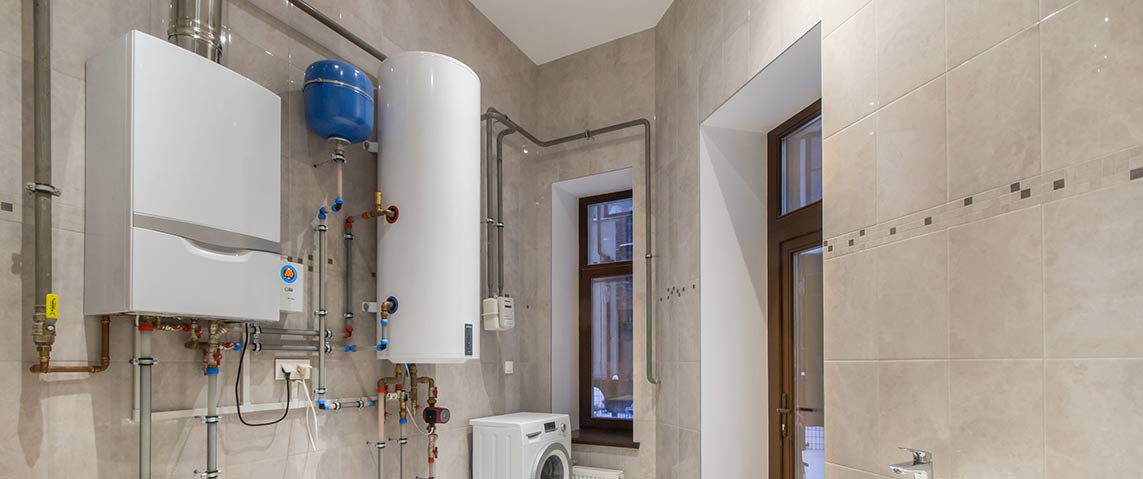How does a hot water cylinder work?

What is a Hot Water Cylinder?
A hot water cylinder is generally a storage tank to hold hot water. It is connected to a boiler or other heat source, which heats the water and then stores it until it is needed. The cylinder is usually made of stainless steel, copper or other materials that are able to withstand high temperatures and pressures.
There are two main types of hot water cylinders used in the UK - vented and unvented. Vented cylinders are connected to a cold water storage tank, which is usually located in the loft. The water is heated by a boiler or immersion heater, and then flows into the cylinder. When hot water is required, it flows out of the cylinder and through a tap or shower.
Unvented cylinders are directly connected to the mains water supply. They are pressurised, which means that the water is under pressure and doesn't require a separate pump to push it through the system. The water is heated by a boiler or immersion heater, and then stored in the cylinder until it is needed.
How Does a Hot Water Cylinder Work?
The basic principle of a hot water cylinder is simple - water is heated and stored until it is needed. However, there are a few more steps involved in the process.
Firstly, the water is heated by a heat source, which can be a boiler, solar panel or immersion heater. The heat source is connected to the cylinder, and transfers heat to the water inside. The temperature of the water is regulated by a thermostat, which ensures that the water doesn't get too hot or too cold.
Once the water is heated, it is stored in the cylinder until it is needed. When hot water is required, it flows out of the cylinder and through a pipe to the taps or shower. The pressure of the water is determined by the height of the cold water storage tank (in the case of a vented system) or the mains water pressure (in the case of an unvented system).
One of the advantages of a hot water cylinder is that it can store a large amount of hot water, which means that you can use multiple taps or showers simultaneously without running out of hot water. However, this also means that the cylinder can take a long time to heat up initially, and it can be inefficient if you don't use much hot water.
Installation and Maintenance
When installing a hot water cylinder, it's important to ensure that it is the right size for your household's needs. A cylinder that is too small may not be able to provide enough hot water, while a cylinder that is too large may be inefficient and waste energy. It's also important to ensure that the cylinder is installed correctly and in compliance with building regulations.
Regular maintenance is also crucial to ensure that your hot water cylinder continues to function properly. This includes checking the pressure, inspecting the thermostat and heating elements, and ensuring that the cylinder is free from leaks or corrosion. It's recommended to have your hot water cylinder serviced annually by a qualified engineer.
Get your central heating covered
Efficiency and Energy Savings
Hot water cylinders can be relatively energy-intensive, particularly if they are heated by a conventional gas or oil boiler. However, there are a number of ways to improve the efficiency of your hot water system and reduce your energy bills.
One option is to switch to a renewable heat source, such as a solar thermal system or an air source heat pump. These systems can be more expensive to install initially, but can provide significant savings in the long run by reducing your reliance on fossil fuels.
Another option is to improve the insulation of your hot water cylinder and pipework. This can help to reduce heat loss and improve the efficiency of your system. Insulation jackets can be easily installed around the cylinder, and pipe insulation can be added to reduce heat loss as the water travels through the system.
Finally, it's important to consider your household's hot water usage habits. If you tend to use a lot of hot water, particularly during peak times, you may benefit from a larger cylinder or a more efficient heating system. However, if you don't use much hot water, a smaller cylinder or an on-demand heating system may be more appropriate.
Conclusion
Hot water cylinders are a key component of many domestic hot water systems in the UK, providing a reliable supply of hot water for washing, bathing, and other everyday activities. Whether you have a vented or unvented system, understanding how your hot water cylinder works can help you to troubleshoot any issues and ensure that you have a consistent supply of hot water.
By taking steps to improve the efficiency of your hot water system, you can reduce your energy bills and your environmental impact. From installing renewable heating systems to improving insulation and adjusting your hot water usage habits, there are a range of options available to help you make the most of your hot water cylinder. And with regular maintenance and servicing, you can ensure that your hot water cylinder continues to function at its best for many years to come.

 Appliance
Appliance







